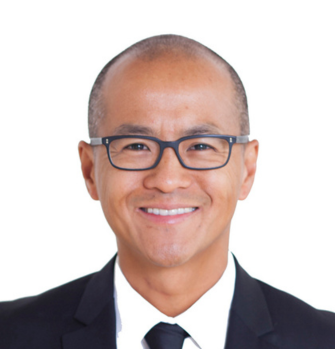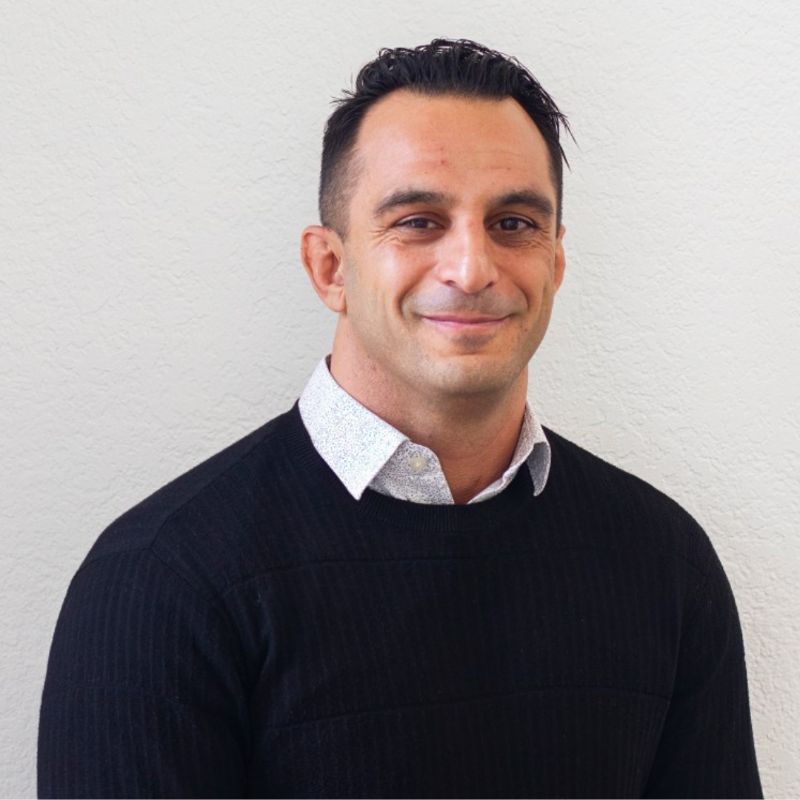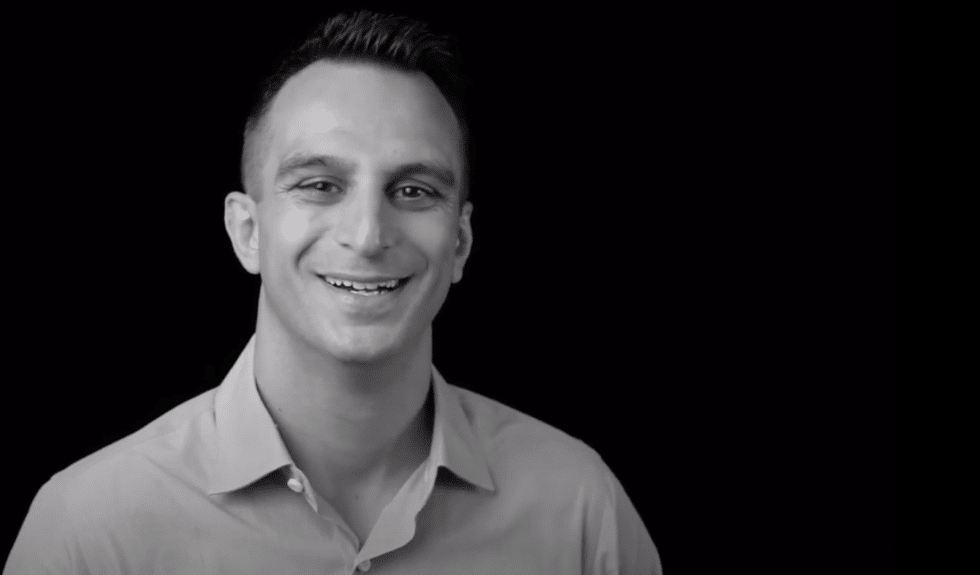
Back in the 1980s, a book called “The 7 Habits of Highly Effective People” began making waves, and it still remains one of the best-selling nonfiction business books in history. The reason is pretty clear – people are always in search of the secret to success.
However, any successful person will tell you there’s no magic potion or easy formula to achieving your professional, financial, or personal goals. There’s no recipe hidden in Grandma’s cookbook, no treasure map buried in the ground. Still, there are some key ingredients that seem to overlap in everyone’s stories – among them are hard work, grit, and determination. Throw in a splash of creativity, flexibility, and resilience, and you’ll be well on your way to paving your own successful path.
Just ask Kevin Markarian of Marker Real Estate. He’s a successful San Francisco broker who has come a long way since his days of cluelessly clutching a phone book. (You’ll understand what that means soon enough…just keep reading!)
Hi, Kevin! I’ve really been looking forward to speaking with you. Thanks for letting us feature you on the HighNote blog!
Absolutely! I’m really excited to be here, thank you so much for the opportunity.
Before you were the successful broker you are today, you were just a young guy with a lot of grit. Tell me about those early days!
Of course. I got started in real estate when I was really young, like in 2000. I was 20 years old or so, and I lived in the little farm town of Modesto, California. There’s not really a lot that goes on there.

I was going to junior college and my Dad asked if I’d be interested in becoming a real estate agent. I decided that would be a great opportunity. I got my real estate license and then started working. And I remember the broker I was working with gave me a phone book and said, “start calling people.” So I did.
I was lucky enough to get hired by a big builder. At the time, there was a lot of new construction happening in the area, and this company hired me as a sales representative. I was just freshly getting into real estate so it was this amazing opportunity. Then very early on, within a couple years, the builder was a Top 10 builder. And I ended up becoming the #1 agent in the country for them at a really young age.
And that success opened you up to a lot of other opportunities, right?
Yes. I started getting asked to go out and help conduct trainings. I was such a young, naive kid. I was being asked to help train people who were my parents’ age. It was awkward, but it was cool. I got to learn so much during that time. I wasn’t necessarily the one doing the trainings, I was kind of there as a helper. I think they probably looked at me as this young guy who was doing really well. It was just a fun, crazy, awesome time for me.
….And then the market crashed, three or four years later.
The Central Valley of California, where I was living, was like the epicenter of the foreclosure crisis in the United States. So I went from being a high-flying agent to showing these super low-priced, dilapidated, foreclosed homes that had been completely gutted. People were literally taking everything, even the toilets.
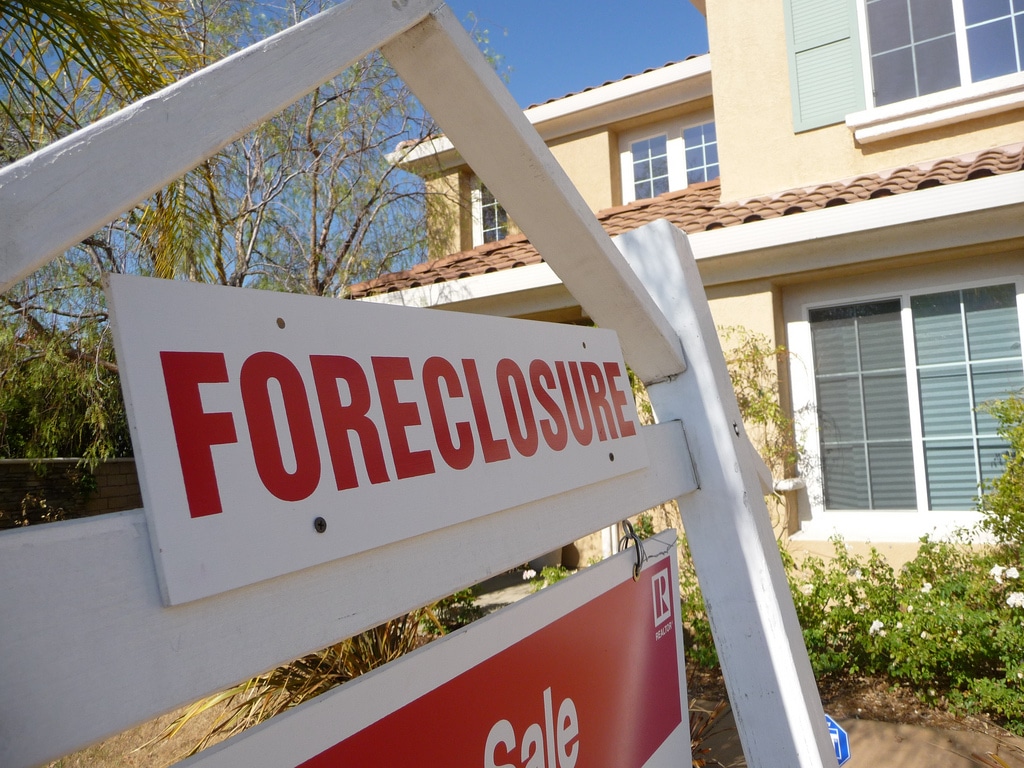
I remember going home one day, and I spoke to my wife. I told her, this job isn’t very fun anymore. The future just didn’t look very bright. So then I started focusing on San Francisco. It was an hour away, I could go from this little farm town to one of the most successful cities in the world.
I had always thought about San Francisco as this awesome, great city. Home prices were super high and I thought, I can get paid a lot more in San Francisco for doing the same amount of work. And so we took a chance. We ended up moving there, and hit the reset button on my career. It felt like a major move, from this little town to the big city.
How did people react to you making that move in the middle of a financial crisis?
They called me crazy! They told me it was the dumbest decision I could have made. But I always knew I could rely on myself. There’s that phrase, “If you’re going to fail, fail forward.” And that’s what I did. I thought, if I’m going to fail, let me fail big. Let me swing for the fences, let’s go for it. Let’s try to hit a home run.
Admittedly, I wasn’t that big of a badass because I still had a brokerage in the Central Valley. I did rely on that business during the transition period. The move was smart, it was calculated.
So what happened once you were settled in San Francisco?
They called me crazy! They told me it was the dumbest decision I could have made. But I always knew I could rely on myself. There’s that phrase, “If you’re going to fail, fail forward.” And that’s what I did. I thought, if I’m going to fail, let me fail big. Let me swing for the fences, let’s go for it. Let’s try to hit a home run.
Admittedly, I wasn’t that big of a badass because I still had a brokerage in the Central Valley. I did rely on that business during the transition period. The move was smart, it was calculated.

The key to making that happen was by thinking about how I could go into a brand new market and level the playing field. How could I be competitive in a market where no one knew who I was? So the way I was able to do that was through digital advertising. At that time, Zillow and all those companies were only starting out. Even top agents didn’t really use Zillow yet, and they weren’t doing digital advertising. So I was able to really break in by being more visible than others. You could find someone who had been in the market for 25 years in San Francisco, but they were invisible online. So I just wanted to show up online. I figured it would give me both credibility and visibility, and that’s what happened. So I was really just thinking strategically, in that sense. And it worked really well.
That’s great that you were able to jump in at a time when the internet wasn’t being used to its full potential. But can agents nowadays use tech in such a successful way? After all, it’s 2020 and everyone is online all the time…
Yes, you can still be really smart about using tech, even now! Anybody can do that in any market, anywhere. It’s just a little bit different today because everyone’s in the digital game now. But there are different strategies that you can implement.

It’s basically about taking your existing database, whether it’s your own sphere or whether it’s your client database, and making sure that you’re being seen. You have to make sure you’re sending the right messages to those audiences. You have to break down your database to specifically target them with information that’s relevant to them, and do it on a regular basis. So that’s really the difference. Just target the right audiences with content that’s relevant to them and do it consistently.
You also need to create campaigns that will put you in a good light in front of the right people, so that you become the authority, you become what you want to be. Just become visible digitally, with your own sort of creative touch and your own control. There’s still potential in the digital realm, definitely.
One of the things I really like about you is that you’re not only focused on your own success, but also on the success of others in real estate. Can you elaborate on how you help others?
What we’re doing now is, we’ve taken this brokerage model, because we’ve gotten to a point now where we’re generating maybe 300 or 400 leads per hour, where people are just inquiring. So we’re now taking this model and we’re offering it to other teams and brokers around the country so that they can take this model of ours, and we work together and partner up. And they just use our systems and our tools so that they can really scale and grow their teams and their brokerages because that’s, you know, one of the challenges I think a lot of team leaders and brokers face.

A lot of times you have an agent who is very successful and wants to become a team leader and become a broker. However, their skill set is sales and being a salesperson, not necessarily managing people. So that’s what I’ve been focusing on more now, and what I’m interested in, is looking for people out there who want to grow, who want to take it to the next level.
You also have a bunch of side businesses centered on the real estate transaction, right? Tell me about those.
Yes, we have several, all revolving around things that are generally needed during, before, or after the transaction. For example, we have an NHD (Natural Hazard Disclosure) business. Every transaction in California requires an NHD report, which tells you if a house is in a flood zone, an earthquake zone, a high fire hazard area, etc. So we own that company and provide those reports.
We also have a handyman company and other ancillary businesses around the transaction. Because think about it – every transaction that you generate creates commerce in a lot of different areas. So we need to own those things because otherwise we’re basically giving that money away. Every successful agent or broker should have these things. There’s so much opportunity, yet so many people in real estate aren’t taking advantage of those opportunities. Just think about all of the potential – escrow, mortgage title, insurance, home warranty, the list goes on. Those needs are there, the opportunity is on the table.
That’s such a good idea! What else makes your brokerage different from the rest?
Well, we’re really tech forward. Some of the things we did in the past are the things that other companies are starting to do, in the age of COVID-19. For example, I never wanted to invest in a massive traditional office space because, quite frankly, it’s a waste in a lot of ways. Most agents just don’t spend time at the office. That’s one of the ways we’ve been able to thrive.

We also have something called “Agent Concierge.” We’ll do anything for an agent, outside of paying their bills! So if somebody reaches out and asks us to, you know, set up showings for them, we’ll do that. If they want us to set up dog grooming for their dog, we’ll do that. So it’s kind of like a five-star resort. There’s nothing that you can’t ask your concierge person at the resort to do. They’ll do pretty much anything as a service. So my thing is, I want agents to focus on dollar producing activities; I want them to focus on things that are going to help them grow in terms of their business. We as a company need to be there to support them by creating an environment that’s going to help them succeed.
We also have a team, basically a call center located in different places around the world, and they’re making calls and setting up appointments for agents at our company. Think about it – nine out of 10 agents don’t make it in our industry. That’s usually because they’re not able to drum up business; it’s a challenge to get clients. So as a brokerage, we help bridge that gap because we’re generating thousands of leads. So we create the opportunity for agents to go out and do what they want to do, which is help people buy and sell homes.

Then of course there’s the culture aspect. We just had a company holiday event (virtual, of course, due to COVID), where we played trivia and we brought everyone together. It’s nice to throw some different lighthearted, fun things in the mix. We’re all in this for the same reason. We all want the best for our families, the best for our kids, and we try to do the best we possibly can for our clients. So we just try to be there to support agents and make them happy and feel good. There’s pretty much nothing that we won’t do for our agents, as long as it’s within the law!
Inclusivity is also super important to me. I remember working in an office and getting the cold shoulder whenever I wanted to ask a top agent a question. There’s nothing like that at our company. We love to talk and help each other.
You have about 200 agents within your brokerage. What’s your hiring criteria?
Well, I think what’s important is just having a certain mindset, like, you know, with past experiences. How have they dealt with challenges, etc. In our business you fail a lot more than you succeed, so I really look for that sort of entrepreneurial mindset and grit, and understanding that you’re not always going to win every single time. It’s not about if you fall, it’s about if you’re willing to get back up.
We’ve said “no” to a lot more agents than we’ve said “yes” to, simply because we want to work with people who are like-minded, people who want to be successful. We also invest dollars in every agent who joins our company, because we provide leads to them. We have a staff that sets appointments for them. So I quite frankly can’t afford to bring on every single agent that wants to join! We just look for people who take their business really seriously.
I also love to see tech savvy agents. They have a much better experience at our company than someone who isn’t tech savvy, simply because of all the different tools that we use.

I’m glad you brought up the subject of tech! We’re on the HighNote blog, so I obviously want to ask you about HighNote, and any challenges that you think it solves for agents.
I think it’s a phenomenal product. The tracking and engagement and seeing who’s interested based on activity creates a low-hanging fruit opportunity and saves time. I think it’s something that can be used as a tool to differentiate agents across the country and help them close more transactions simply because the technology is super cool and the presentation is so beautiful.
The biggest challenge that I think it solves is the time factor! I can see immediately if someone has opened my presentation, if they’re interested in what I have to say. Then I know to give them a call. That’s a challenge that a lot of agents face – having to go through a massive haystack to find the needle, to find who to call. With HighNote, the needle finds the agent. It shortens the distance to the finish line.
So it sounds like you attribute your success to hard work and your early use of technology. Is there anything else you want to add to that list?
This might be kind of a weird answer, but I think it’s just appreciating that we are salespeople. And that’s okay. I think a lot of times we feel like we represent our clients and we do the best we can for them, and all those things are very important. But ultimately, you’re a salesperson and you have to understand what your client needs and provide that to them. And so it just comes down to asking questions, it comes down to understanding your client’s needs, it comes down to product knowledge. Know your neighborhood, your area, your client, your property. Demonstrate value. It’s basic stuff.

And there are a lot of things out there right now, where it’s all so fancy. Like, “get on video and do this.” I mean it’s cool, yes. But then what? You’ve been on video, your videos are awesome. You look great. But then what do you do when the client is sitting in front of you? Are you going to be able to close the transaction?
We’re in this world of tech and content, which is good. But then what? You have to know how to sell. You have to know what to say at the right time. A lot of agents have forgotten the basics. So those agents who are good at the basics, if they’ve got the combination with tech and targeting and video and everything, that’s the difference between being successful and being average. You have to have both right now.
People also need to implement and execute their ideas to be successful, and most people don’t. Look back at your notes from a conference that you went to two years ago. How many of those things have you actually done? You wrote them down, and you were super excited about them at the time, but have you implemented them? Have you executed them?
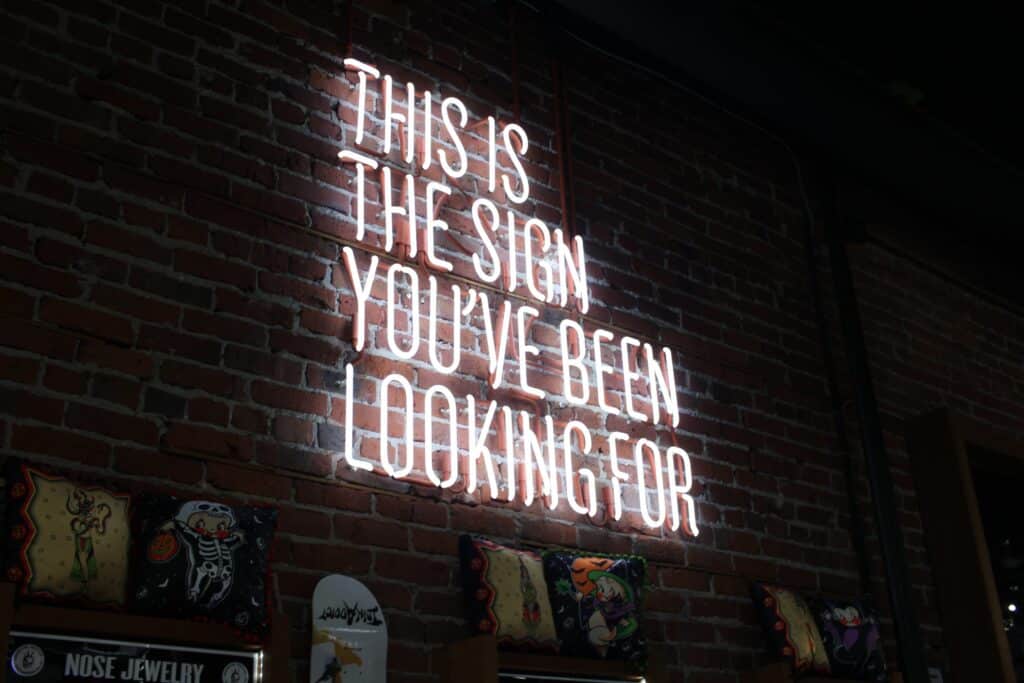
Idea, implement, execute. Those are the steps, but many of us don’t ever get past the idea part. We get stuck on the idea. We think it’s cool, but we don’t take action because we’re planning it out and wanting it to be perfect. But you end up wasting all that time. Just do it and figure it out as you go.
As we wind up this interview, and the end of 2020, can you share your plans and goals for 2021?
I want to continue to grow my businesses and hopefully partner with cool people. And I just want to help. I have found that the more I give, the more I receive. It’s really corny to say, but it’s true. The most successful people out there tend to be the biggest sharers of information. That being said, I would love to know what the one key takeaway of this interview is for people – if anyone wants to let me know, that’d be great! And if anyone is interested in learning more, or interested in doing a partnership or joint venture or anything like that, reach out to me. I’d love to chat.
If you want to get in touch with Kevin, you can do so by heading to the Marker Real Estate website. You can also follow the brokerage on Facebook!
…And if you’re a real estate agent looking to take your business to the next level, click here to get started with HighNote.

